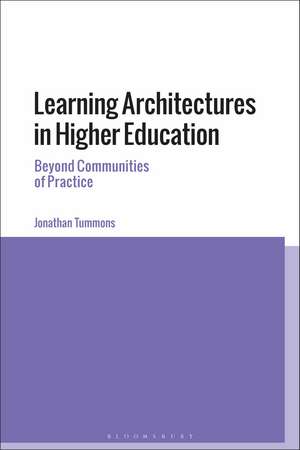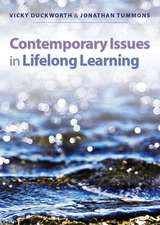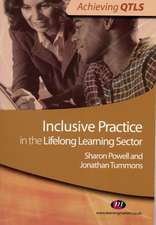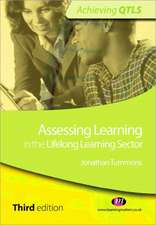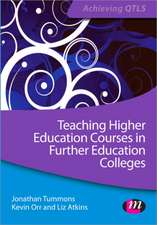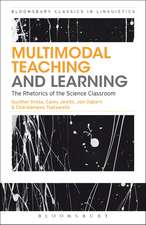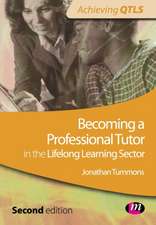Learning Architectures in Higher Education: Beyond Communities of Practice
Autor Dr Jonathan Tummonsen Limba Engleză Paperback – 18 sep 2019
| Toate formatele și edițiile | Preț | Express |
|---|---|---|
| Paperback (1) | 229.24 lei 6-8 săpt. | |
| Bloomsbury Publishing – 18 sep 2019 | 229.24 lei 6-8 săpt. | |
| Hardback (1) | 770.52 lei 6-8 săpt. | |
| Bloomsbury Publishing – 21 mar 2018 | 770.52 lei 6-8 săpt. |
Preț: 229.24 lei
Preț vechi: 296.26 lei
-23% Nou
Puncte Express: 344
Preț estimativ în valută:
43.87€ • 45.54$ • 36.58£
43.87€ • 45.54$ • 36.58£
Carte tipărită la comandă
Livrare economică 22 martie-05 aprilie
Preluare comenzi: 021 569.72.76
Specificații
ISBN-13: 9781350130975
ISBN-10: 1350130974
Pagini: 184
Ilustrații: 10 bw illus
Dimensiuni: 156 x 234 x 16 mm
Greutate: 0.27 kg
Editura: Bloomsbury Publishing
Colecția Bloomsbury Academic
Locul publicării:London, United Kingdom
ISBN-10: 1350130974
Pagini: 184
Ilustrații: 10 bw illus
Dimensiuni: 156 x 234 x 16 mm
Greutate: 0.27 kg
Editura: Bloomsbury Publishing
Colecția Bloomsbury Academic
Locul publicării:London, United Kingdom
Caracteristici
A theoretical framework for unpacking contemporary learning and teaching practices in higher education
Notă biografică
Jonathan Tummons is Associate Professor of Education at Durham University, UK. His research and writing interests encompass higher, further, and professional education.
Cuprins
1. Communities of Practice 2. Communities of Practice in Higher Education 3. Learning and Assessment in Communities of Practice 4. Necessary Extensions, Part 1 - Actor- Network Theory, and Literacy Studies 5. Necessary Extensions, Part 2 - Threshold Concepts, and Activity Theory 6. Learning Architectures in Higher Education 7. Learning Architectures in Teacher Training 8. Learning Architectures in Medical Education 9. Two Conclusions ReferencesIndex
Recenzii
Tummons has written a valuable text for academics and Higher Education researchers interested in utilising communities of practice theory within their research. He explores how learning architectures and complimentary theories can be used in practice to enhance theoretical frameworks of pedagogy, research, and learning in the academy.
